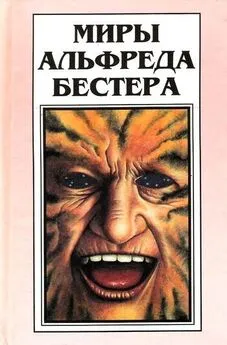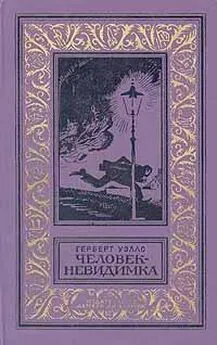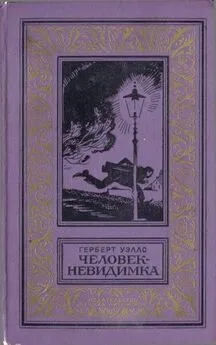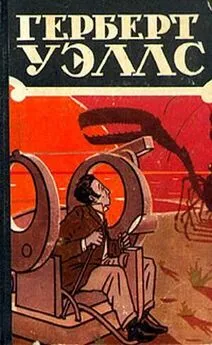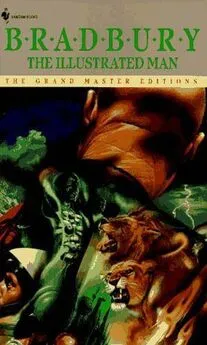Герберт Уэллс - Человек-невидимка / The Invisible Man + аудиоприложение
- Название:Человек-невидимка / The Invisible Man + аудиоприложение
- Автор:
- Жанр:
- Издательство:неизвестно
- Год:2020
- Город:Москва
- ISBN:978-5-17-118836-8
- Рейтинг:
- Избранное:Добавить в избранное
-
Отзывы:
-
Ваша оценка:
Герберт Уэллс - Человек-невидимка / The Invisible Man + аудиоприложение краткое содержание
Человек-невидимка / The Invisible Man + аудиоприложение - читать онлайн бесплатно ознакомительный отрывок
Интервал:
Закладка:
Behind him he heard a sudden yell of rage. He recognised the voice as that of the Invisible Man.
In another moment Mr. Cuss was back in the parlour.
“He’s coming back, Bunting!” he said, rushing in. “Save yourself!”
Mr. Bunting was standing in the window and clothing himself in the paper.
“Who’s coming?” he said.
“Invisible Man,” said Cuss, and rushed on to the window. “He’s mad! Mad!”
In another moment he was out in the yard.
“Good heavens!” said Mr. Bunting. He clambered out of the window, adjusted his costume hastily, and fled up the village as fast as his fat little legs would carry him.
From the moment when the Invisible Man screamed with rage, it became impossible to give a consecutive account of affairs in Iping. Possibly the Invisible Man’s original intention was simply to take the clothes and books. But then he began to fight.
After that the Invisible Man amused himself for a little while by breaking all the windows in the “Coach and Horses,” and then he thrust a street lamp through the parlour window of Mrs. Gribble. And after that he left, and he was neither heard, seen, nor felt in Iping any more. He vanished absolutely.
Chapter XIII
Mr. Marvel Discusses His Resignation
When the dusk was gathering, a short man in a shabby silk hat was marching through the twilight on the road to Bramblehurst. He carried three books bound together, and a bundle wrapped in a blue table-cloth. His rubicund face expressed consternation and fatigue. He was accompanied by a voice, and ever and again he winced under the touch of unseen hands.
“If you run away again,” said the Voice, “if you attempt to run away again-”
“Lord!” said Mr. Marvel. “Oh, that hurts!”
“On my honour,” said the Voice, “I will kill you.”
“I didn’t try to run away,” said Marvel. “I swear I didn’t. I didn’t know where to turn! How the devil could I know that?”
Mr. Marvel became silent. He blew out his cheeks, and his eyes were eloquent of despair.
“It’s bad enough to let these yokels explode my little secret, without your trying to go away with my books. No one knew I was invisible! And now what am I to do?”
“What am I to do?” asked Marvel.
“Everybody knows that now. It will be in the papers! Everybody will be looking for me!”
Mr. Marvel’s pace slackened.
“Go on!” said the Voice sharply. “Don’t drop those books, stupid. The fact is, I shall have to make use of you… You’re a poor tool, but I must.”
“I’m a miserable tool,” said Marvel.
“You are,” said the Voice.
“I’m the worst possible tool you could have,” said Marvel. “And I’m not strong at all.”
“No?”
“And my heart is weak.”
“Well?”
“I haven’t the nerve and strength for the sort of thing you want.”
“I’ll stimulate you.”
“I wish you wouldn’t. But I can mess up your plans, you know. I am cowardly and miserable.”
“You’d better not,” said the Voice.
“It’s better to die,” said Marvel. “It’s not fair. You must admit… It seems to me I have the right-”
“Go on!” said the Voice.
Mr. Marvel mended his pace, and for a time they went in silence again.
“It’s devilish hard,” said Mr. Marvel.
This was quite ineffectual. He tried again.
“What will I get for that?” he began.
“Oh! Shut up!” said the Voice. “Just do what you’re told. You’re a fool, but you’ll do it.”
“I tell you, sir, I’m not the man for it.”
“If you don’t shut up I shall twist your wrist again,” said the Invisible Man. “I want to think.”
Presently two oblongs of yellow light appeared through the trees, and the square tower of a church loomed through the gloaming.
“I shall keep my hand on your shoulder,” said the Voice, “all through the village. Go straight through and try no foolery.”
“I know that,” sighed Mr. Marvel, “I know all that.”
The unhappy-looking figure in the obsolete silk hat passed up the street of the little village with his burdens, and vanished into the gathering darkness.
Chapter XIV
At Port Stowe
Ten o’clock the next morning found Mr. Marvel, unshaven, and dirty sitting with the books beside him and his hands deep in his pockets, looking very weary, nervous, and uncomfortable, and inflating his cheeks at infrequent intervals, on the bench outside a little inn on the outskirts of Port Stowe. Beside him were the books, tied with string. The bundle had been abandoned in the woods beyond Bramblehurst, in accordance with a change in the plans of the Invisible Man. Mr. Marvel’s hands would go ever and again to his various pockets with a curious nervous fumbling.
When he had been sitting for an hour, an elderly mariner, carrying a newspaper, came out of the inn and sat down beside him.
“Pleasant day,” said the mariner.
“Very,” said Mr. Marvel.
“Just seasonable weather for the time of year,” said the mariner.
“Quite,” said Mr. Marvel.
The mariner’s eyes examined Mr. Marvel’s dusty figure, and the books beside him. As he had approached Mr. Marvel he had heard a sound like the dropping of coins into a pocket.
“Books?” the mariner said suddenly.
Mr. Marvel looked at them.
“Oh, yes,” he said. “Yes, they’re books.”
“There are some extraordinary things in books,” said the mariner.
“I believe you,” said Mr. Marvel.
“And some extraordinary things out of them,” said the mariner.
“That’s true,” said Mr. Marvel. He eyed his interlocutor.
“There are some extraordinary things in newspapers, for example,” said the mariner.
“There are.”
“In this newspaper,” said the mariner.
“Ah!” said Mr. Marvel.
“There’s a story,” said the mariner, fixing Mr. Marvel with an eye that was firm and deliberate; “there’s a story about an Invisible Man, for instance.”
Mr. Marvel scratched his cheek and felt his ears glowing.
“What will they be writing next?” he asked faintly. “Australia or America?”
“Neither,” said the mariner. “Here.”
“Lord!” said Mr. Marvel, starting.
“When I say here,” said the mariner, to Mr. Marvel’s intense relief, “I don’t of course mean here in this place, I mean hereabouts.”
“An Invisible Man!” said Mr. Marvel. “And what does he do?”
“Everything,” said the mariner, controlling Marvel with his eye, and then amplifying, “every-thing.”
“I haven’t seen papers for four days,” said Marvel.
“He was at Iping,” said the mariner.
“Indeed!” said Mr. Marvel.
“He started there. And where he came from, nobody doesn’t seem to know. Here it is: ‘Peculiar Story from Iping.’ And it says in this paper that the evidence is extraordinary strong.”
“Lord!” said Mr. Marvel.
“Yes, it’s an extraordinary story. A clergyman and a doctor saw him, or to be exact, didn’t see him. He was staying, it says, at the ‘Coach and Horses,’ and no one was aware of his misfortune, until his bandages on his head were torn off. It was then observed that his head was invisible. They tried to catch him, but casting off his garments, he succeeded in escaping. And he had seriously wounded our constable, Mr. J. A. Jaffers. What a story, eh?”
“Lord!” said Mr. Marvel, looking nervously about him, trying to count the money in his pockets. “It sounds most astonishing.”
“Indeed! Extraordinary, I call it. I have never heard of Invisible Men before.”
“And that’s all what he did?” asked Marvel.
“It’s enough, isn’t it?” said the mariner.
“Did he go back to Iping?” asked Marvel. “Just escaped and that’s all, eh?”
“All!” said the mariner. “Why! Isn’t it enough?”
“Quite enough,” said Marvel.
“I should think it was enough,” said the mariner. “I should think so.”
“He didn’t have any pals-it doesn’t say he had any pals, does it?” asked Mr. Marvel, anxious.
“You want more of them?” asked the mariner. “No, thank Heaven, he didn’t.”
He nodded his head slowly.
“It makes me uncomfortable, the thought of that chap running about the country! He is free. And they say he may go to Port Stowe. Just think of the things he might do! Let’s suppose he wants to rob-who can prevent him? He can trespass, he can burgle, he could walk through a cordon of policemen! And wherever there was wine he liked-”
“He’s got an advantage, certainly,” said Mr. Marvel.
“You’re right,” said the mariner. “He has.”
Mr. Marvel looked about him, listened, bent towards the mariner, and lowered his voice:
“The fact is-I know something about this Invisible Man. From private sources.”
“Oh!” said the mariner, interested. “You?”
“Yes,” said Mr. Marvel. “Me.”
“Indeed!” said the mariner. “And may I ask-”
“You’ll be astonished,” said Mr. Marvel behind his hand. “It’s tremendous.”
“Indeed!” said the mariner.
“The fact is,” began Mr. Marvel in a confidential tone. Suddenly his expression changed marvellously. “Oh!” he said. His face was eloquent of physical suffering.
“Wow!” he said.
“What’s up?” said the mariner.
“Toothache,” said Mr. Marvel, and put his hand to his cheek. He took his books. “I must go, I think,” he said.
“But you were going to tell me about this Invisible Man!” protested the mariner.
“Hoax,” said a Voice.
“It’s a hoax,” said Mr. Marvel.
“But it’s in the paper,” said the mariner.
“Hoax, I tell you,” said Marvel. “I know the chap that told this lie. There is no Invisible Man whatsoever.”
“But how about this paper? Do you mean to say-?”
“The paper lies,” said Marvel, stoutly.
The mariner stared, paper in hand.
“Wait a bit,” said the mariner, rising and speaking slowly, “Do you mean to say-?”
“I do,” said Mr. Marvel.
“Then why did you listen to me? Why didn’t you stop me? Eh?”
Mr. Marvel blew out his cheeks. The mariner was suddenly very red indeed; he clenched his hands.
“I have been talking here for ten minutes,” he said; “and you, you little pig, couldn’t have the elementary manners-”
“Come up,” said a Voice, and Mr. Marvel was suddenly stood up in a curious spasmodic manner.
“You’d better get away,” said the mariner.
Mr. Marvel went away, but the mariner still stood for some time. Then he turned himself towards Port Stowe.
And there was another extraordinary thing he heard, that had happened quite close to him. That was a vision of a “fist full of money” travelling along by the wall. Another mariner had seen this wonderful sight that morning. He had tried to catch the money and had been knocked down. The story of the flying money was true. And all about that neighbourhood, money had been floating quietly along by walls and shady places. And then the money had ended its mysterious flight in the pocket of the gentleman in the obsolete silk hat, sitting outside the little inn on the outskirts of Port Stowe.
It was ten days after-and the mariner collated these facts and began to understand how near he had been to the wonderful Invisible Man.
Chapter XV
The Man Who Was Running
In the evening Dr. Kemp was sitting in his study in the belvedere on the hill overlooking Burdock. It was a pleasant little room, with three windows-north, west, and south-and bookshelves covered with books and scientific publications, and a broad writing-table, and, under the north window, a microscope, minute instruments, and scattered bottles of reagents. Dr. Kemp’s lamp was lit, albeit the sky was still bright. Dr. Kemp was a tall and slender young man, with flaxen hair and a moustache almost white. His work would earn him, he hoped, the fellowship of the Royal Society, so highly did he think of it.
Читать дальшеИнтервал:
Закладка:


